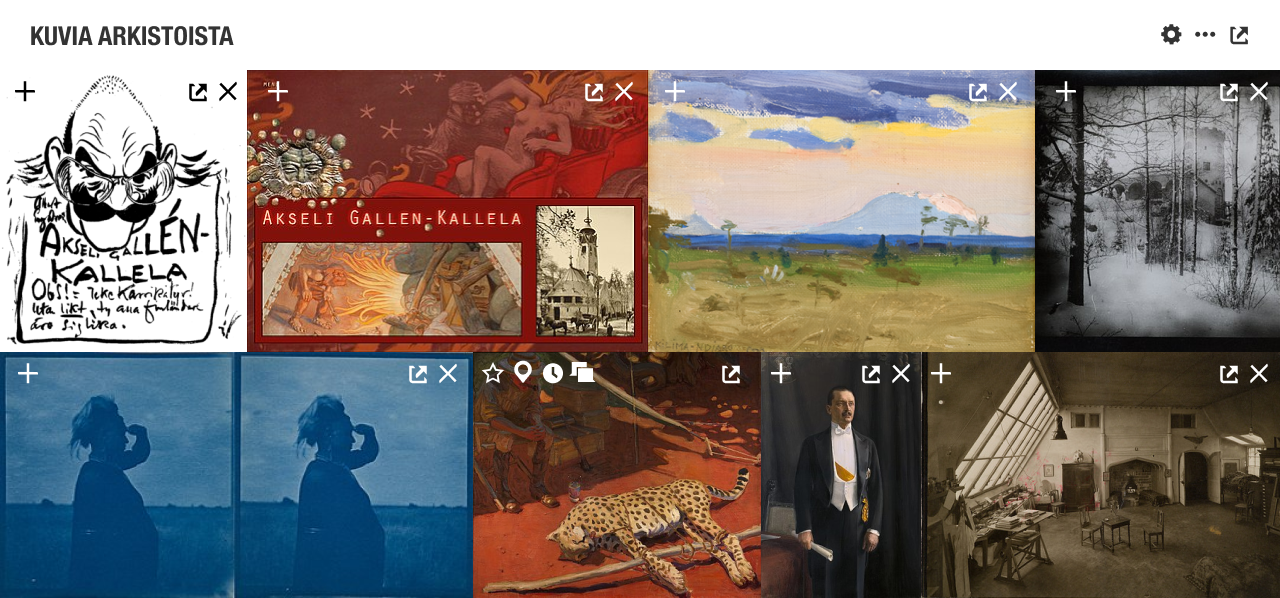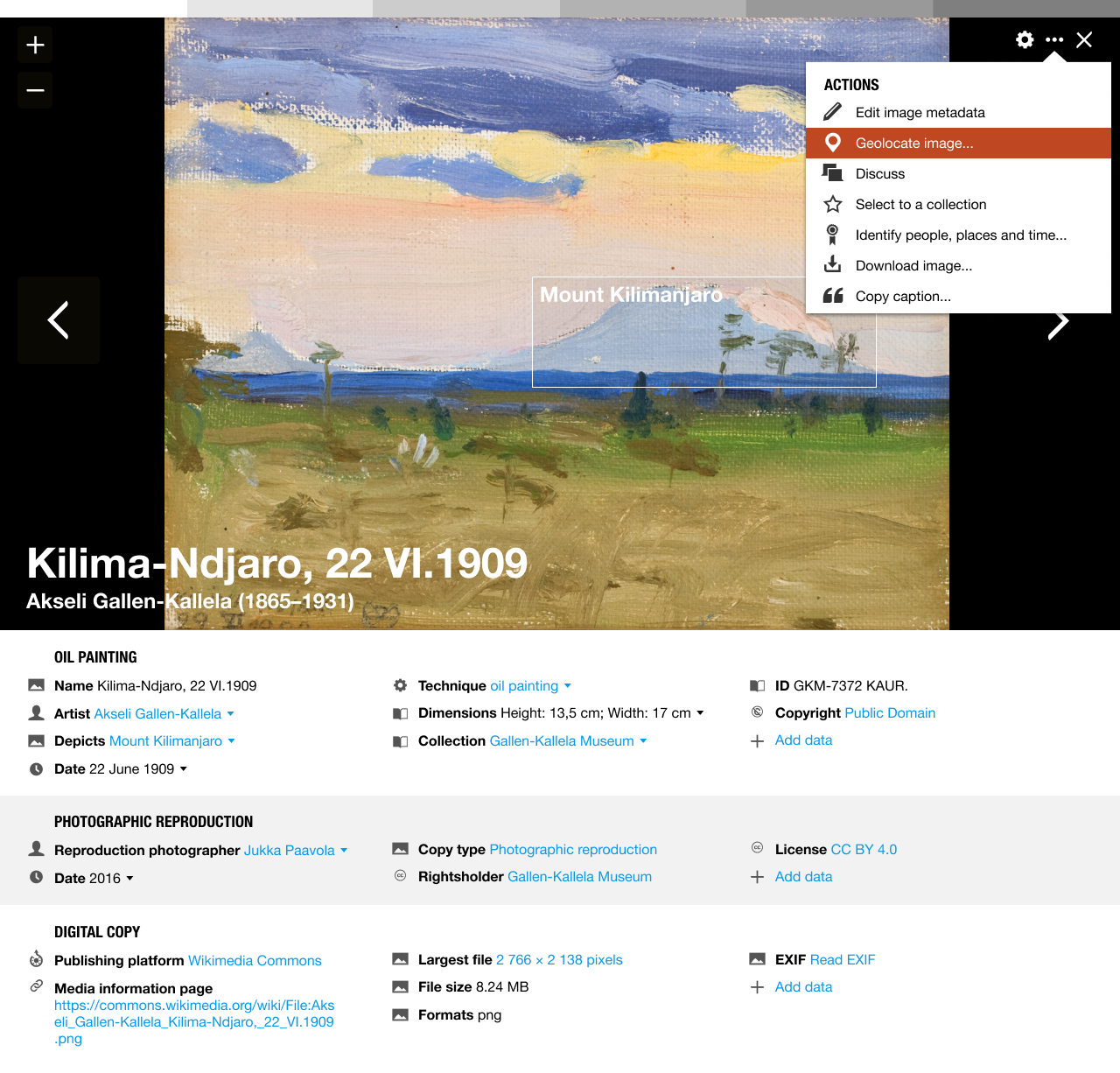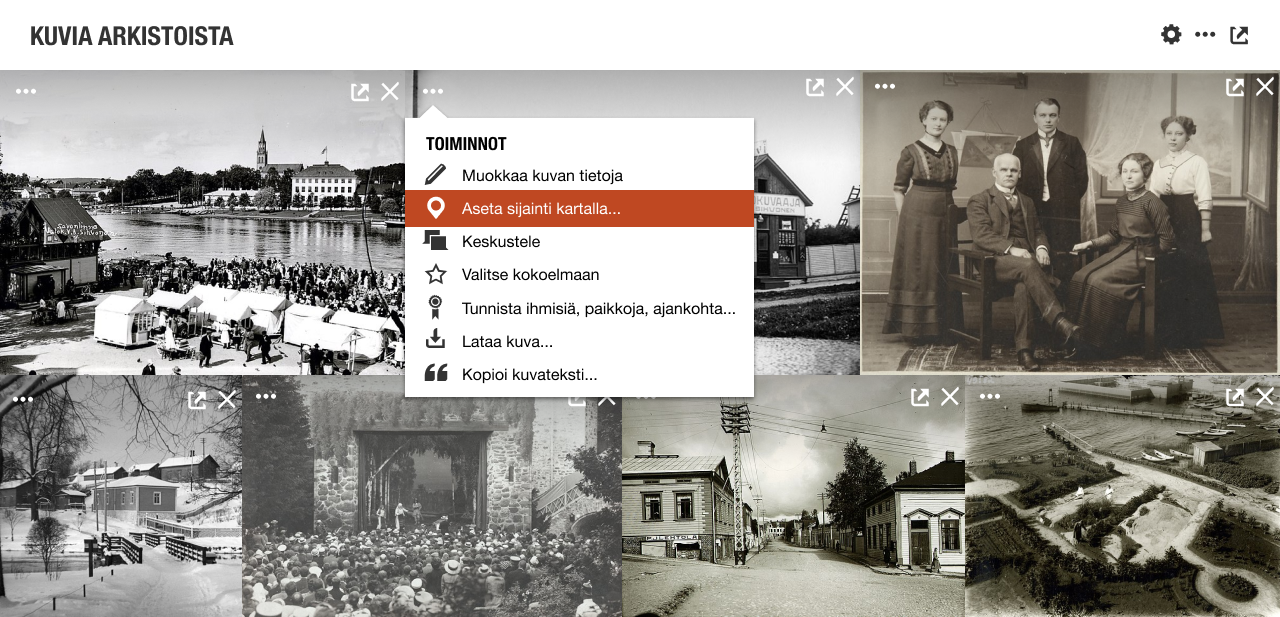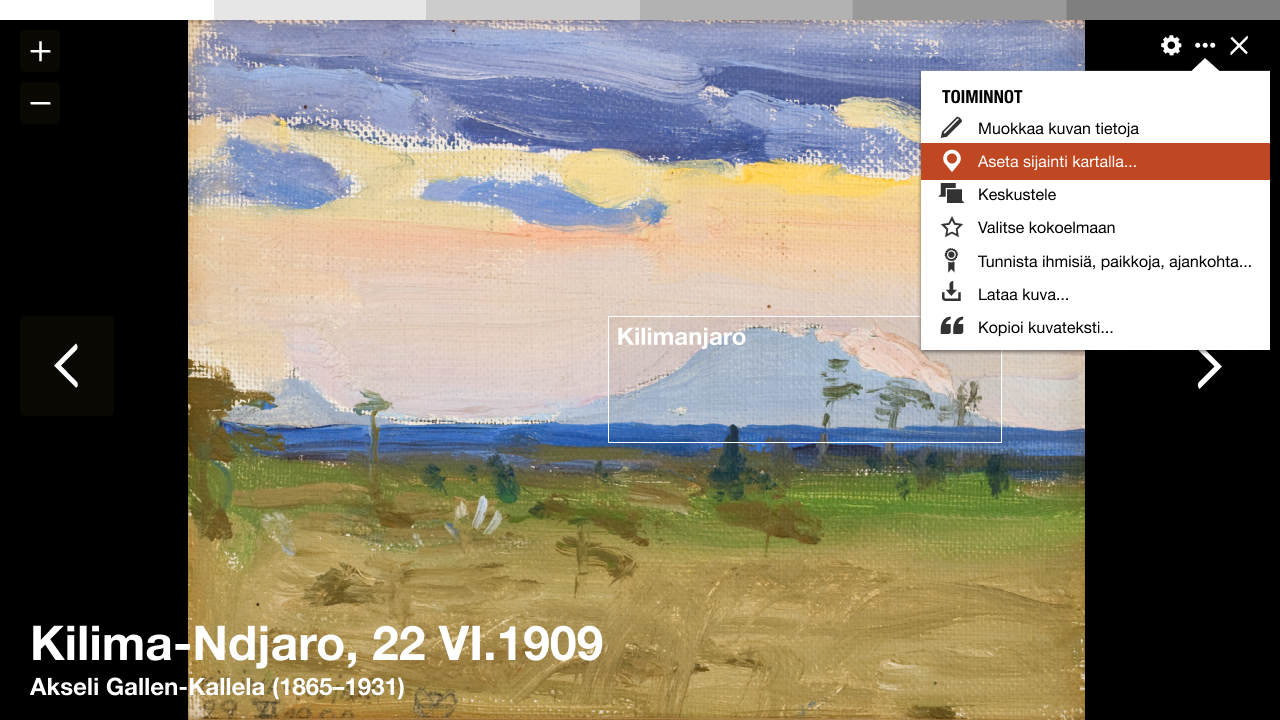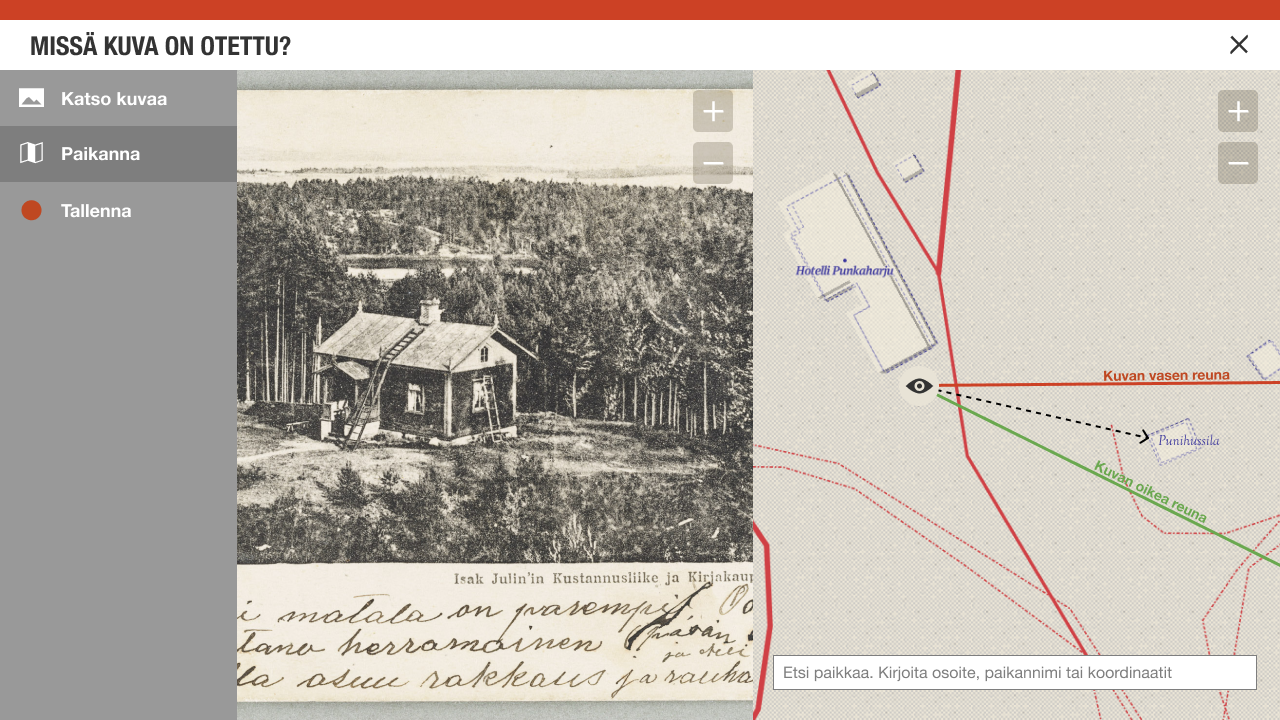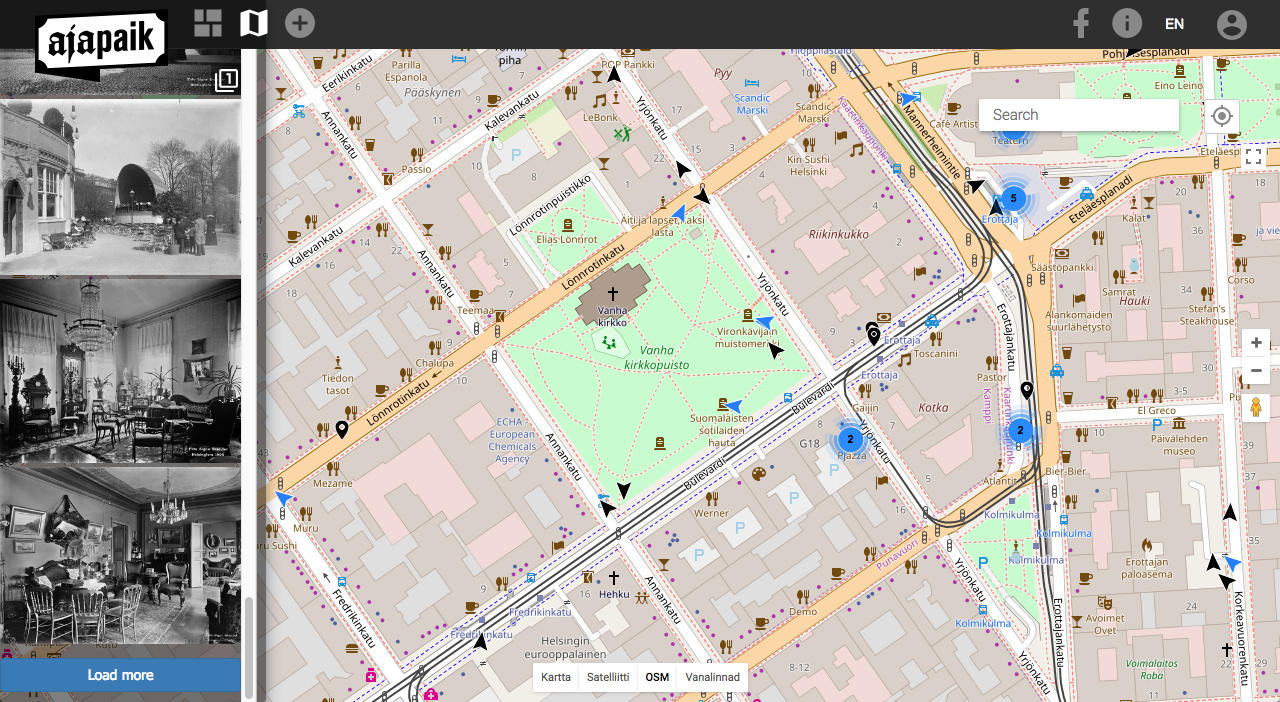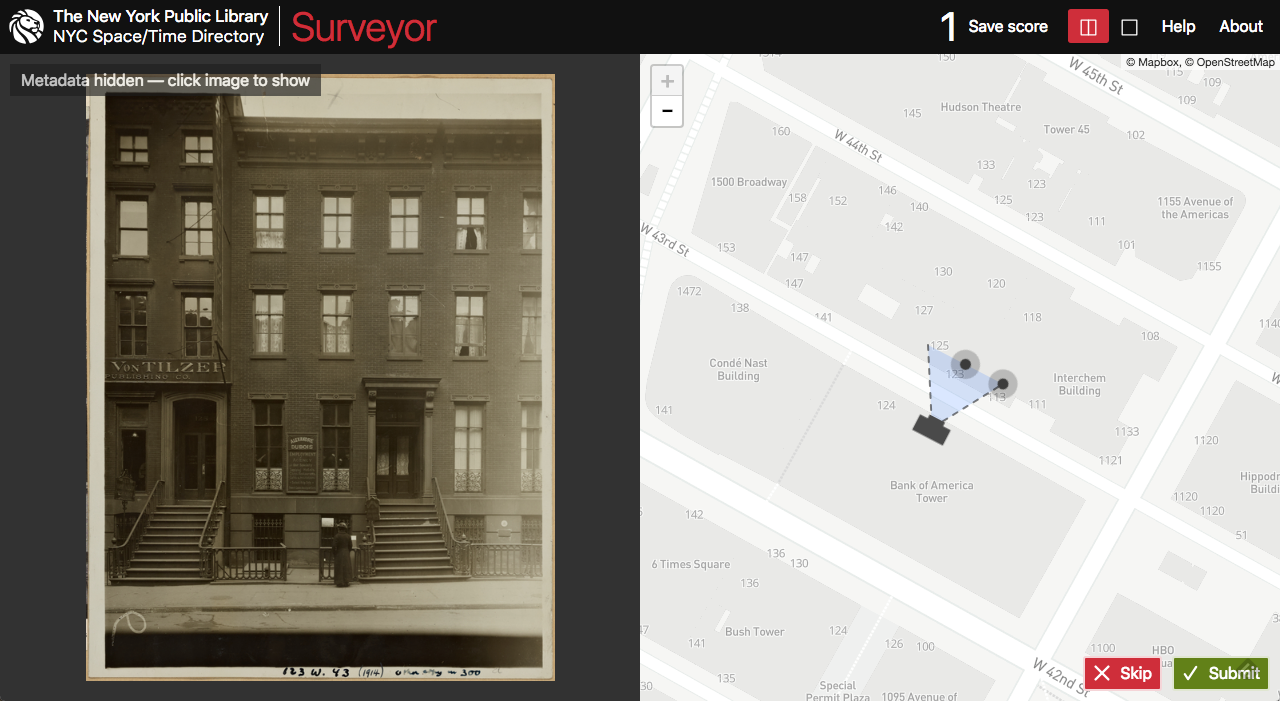Difference between revisions of "Geolocating tool"
Susanna Ånäs (talk | contribs) (→Workflow for geotagging) |
Susanna Ånäs (talk | contribs) (→Workflow for geotagging) |
||
| Line 17: | Line 17: | ||
* The metadata of an image is saved into Wikidocumentaries on the moment it is selected for enriching. Any action in the actions menu will make this happen. [[Metadata mapping]] is defined for all sources that Wikidocumentaries communicates with. | * The metadata of an image is saved into Wikidocumentaries on the moment it is selected for enriching. Any action in the actions menu will make this happen. [[Metadata mapping]] is defined for all sources that Wikidocumentaries communicates with. | ||
'''3. The geotagging interface includes a split view of the zoomable image and the zoomable map.''' | '''3. The geotagging interface includes a split view of the zoomable image and the zoomable map.''' | ||
| − | <gallery mode=packed heights= | + | <gallery mode=packed heights=300> |
Wikidocumentaries-geolocate.png | Wikidocumentaries-geolocate.png | ||
</gallery> | </gallery> | ||
Revision as of 22:33, 16 October 2018
In Wikidocumentaries all openly licensed images can be geotagged. This is not available for images, whose reuse is restricted.
There will be an internal geotagging app, and the images can be rephotographed and geotagged with the Ajapaik mobile app.
Development is based on the work done in the Ajapaik.ee project of the Estonian Photographic Heritage Society as well as the Surveyor project for New York Public Library Labs.
Workflow for geotagging
1. Images are viewed in the topic page images module or an image viewer.
2. Access to geotagging is available with each image in the images module and the image viewer.
- The metadata of an image is saved into Wikidocumentaries on the moment it is selected for enriching. Any action in the actions menu will make this happen. Metadata mapping is defined for all sources that Wikidocumentaries communicates with.
3. The geotagging interface includes a split view of the zoomable image and the zoomable map.
Step 1
- Should the user first set the coordinates with a single coordinate pair? (Used in Surveyor).
- If this is a separate step, the user would confirm the location of the target here.
Enhancement ideas:
- This part could be semantic: The POI points to the location of the target, and records the item, can find the item based on the coordiates, makes a connection in the database to that item etc. (Not a requirement)
- The map could seek to a suggested location by parsing the data in the name and description, or existing location information.
Step 2
- The user will place the camera, the target and the camera angle on the map.
- It should be possible to skip this and save only the point.
Enhancement ideas:
- The user could point items in the map and equivalent items in the image. The field of view could be adjusted automatically based on that.
- The user could frame the side of a building (or other object: street, pond, statue...) in the image and locate the equivalent in the image.
Controls
- It should be possible to use different background imagery: Aerial images, OSM, local official open map sources, historical maps. Maybe even display nearby images? This interface should be similar to the map interface in the topic page.
- Address or geographic search may be used to help find the location.
4. The geotagging data is added to the local image metadata.
- We can contribute to a standardised exchange format for geotagged photos.
5. The user contributions will accumulate, and methods of verifying best locations may be developed.
6. The original image, the image metadata and the added geolocation will be imported to Wikimedia Commons either manually immediately or as a scheduled bot task later. The original memory institution will be able to read the enhanced data from Wikimedia Commons.
Inspiration
Ajapaik web app
| About | Technology | Design | Content modules | Tool pages | Projects |
| Status
Wikidocumentaries Slack |
Setting up dev environment |
Components |
Active modules Module ideas |
Visual editor | Central Park Archives |
